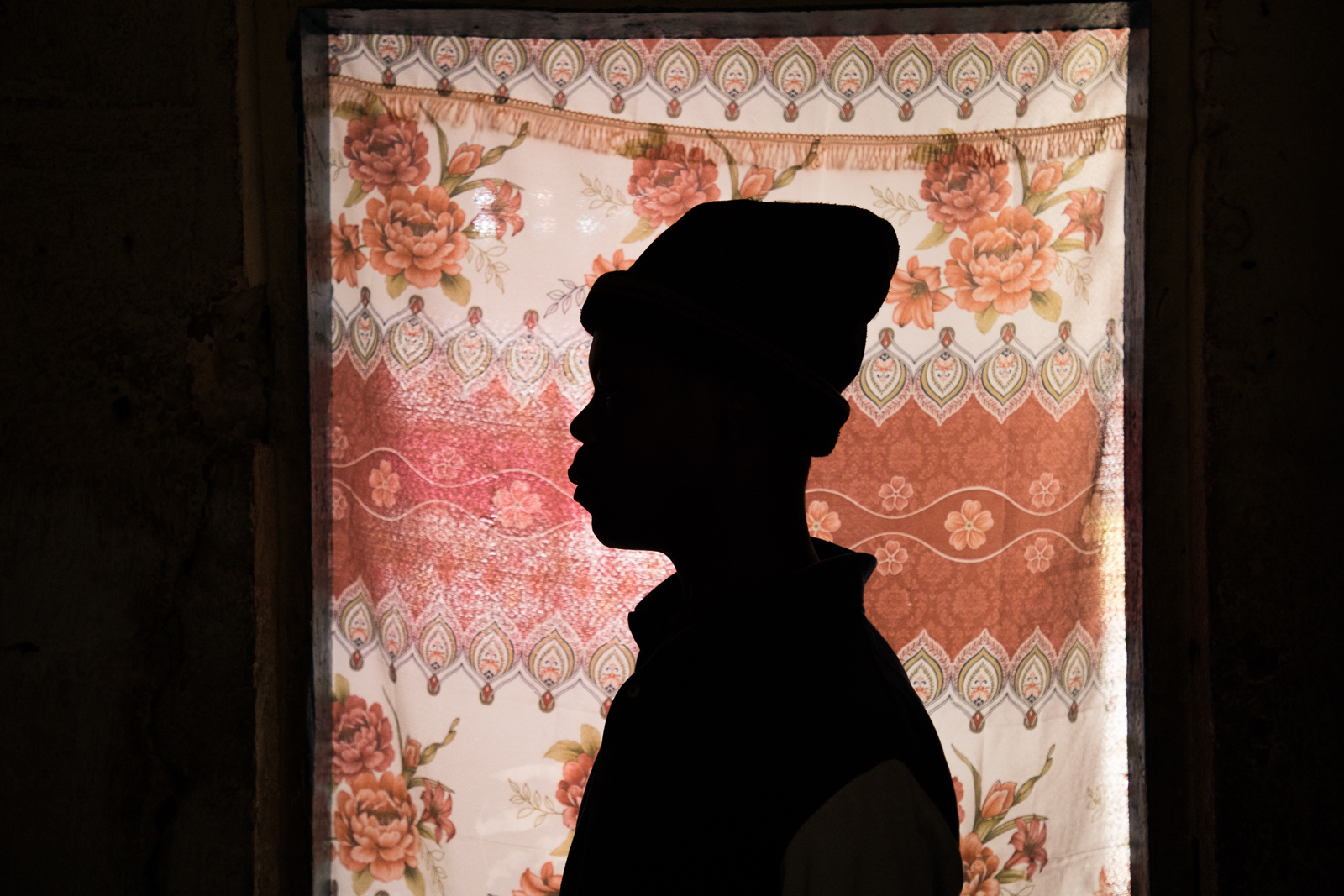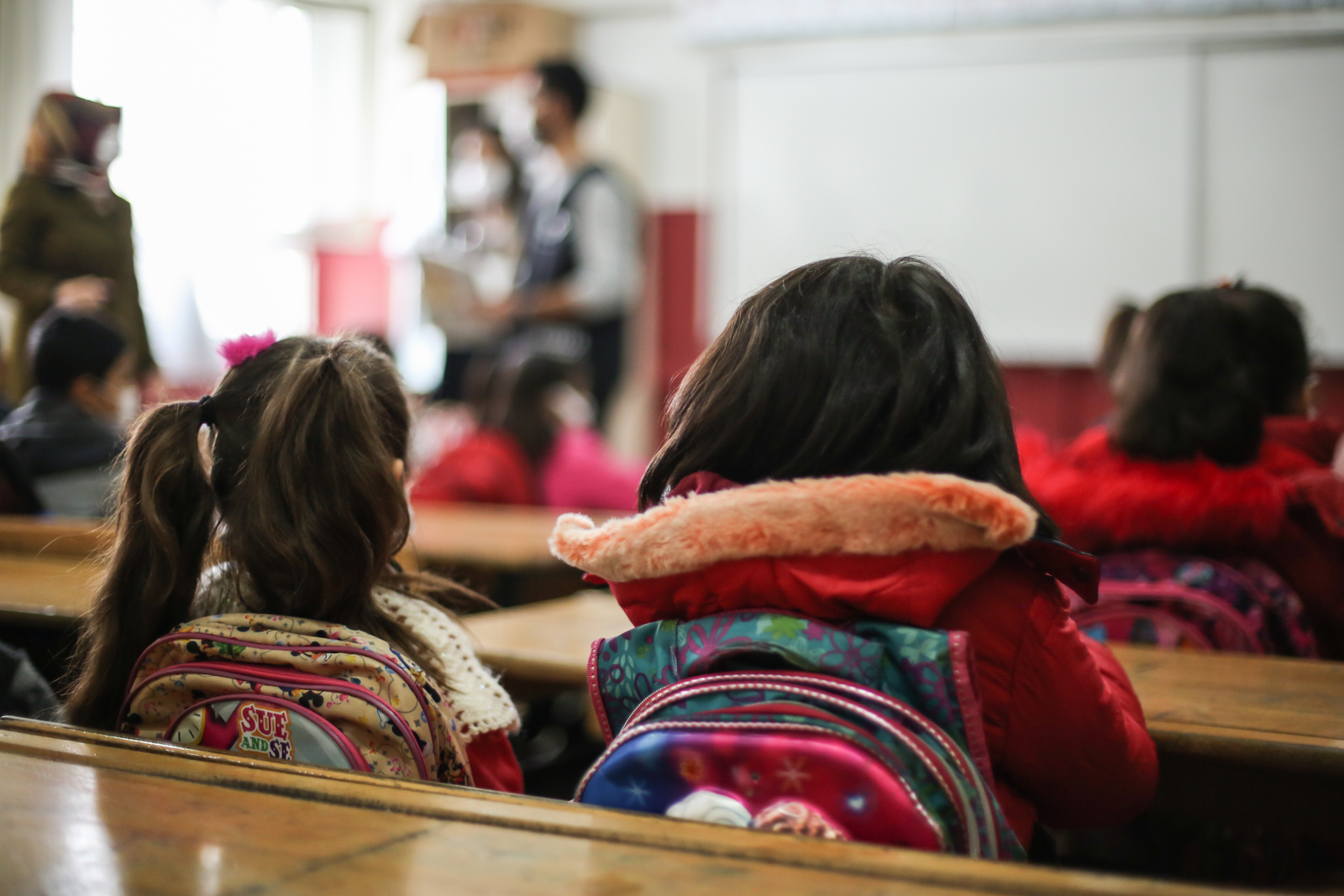
Education protects girls in Democratic Republic of Congo from recruitment to armed gangs
Child soldiers, Children in conflicts, Girls' education
Dropping out of school is a key factor in many girls joining armed groups in the Democratic Republic of Congo , a new report by Child Soldiers International reveals.
Education is protecting girls in eastern parts of the Democratic Republic of Congo from joining armed groups, said Child Soldiers International in a report published today.
It shows that dropping out of school was a key factor in many girls joining armed groups.
For its report – “If I Could Go to School” – Child Soldiers International interviewed 150 former girl soldiers aged 12 to 19 in eastern DRC and found that about a third had joined armed groups voluntarily.
About half of those had joined because they could no longer pay their school fees.
“If I had been going to school, I would not have joined,” one girl says in the report, which arose from the organisation’s work with local NGOS to prevent the recruitment of girls by armed groups and aid their reintegration into civilian society.
Researchers spent six weeks in eastern DRC in January and February, talking to girls about their experiences and their needs, as well as to local NGOs, UN and child protection agencies.
“In our work with NGOS, education came up as a powerful factor in preventing girls joining armed groups and in facilitating their reintegration,” said report author Isabelle Guitard, Director of Programmes.
For more than 20 years, northeast DRC has been plagued by armed conflict involving myriad armed groups.
The vast majority of armed forces have recruited children – and all armed groups still exploit boys and girls today, with girls frequently used as “wives” for sexual purposes.
Although around 30% to 40% of all children associated with armed groups in DRC are thought to be girls, they make up only about 8% of those released to date, according to the United Nations Organisation Stabilisation Mission for DRC. There has been more success in reintegrating boys than girls, who face the stigma of sexual association and are often shunned.

Child Soldiers International works with the Congolese NGOs AJEDI-KA (South Kivu) and PAMI (North Kivu) to support the return to education of former girl soldiers and other vulnerable girls, to provide them with opportunities, prevent their re-recruitment and aid their recovery.
Asked to choose a single aspect of education that was most important in preventing girls’ recruitment, Guitard said it was their physical presence in the protective environment of school.
“A lot of girls told us they didn’t want to be on the streets because they were harassed by men on the streets. They said: ‘We want to be inside a school like other girls’.”
Although primary education is supposed to be free and compulsory in DRC, this is not realistic, she said, and poverty often prevents girls from attending school, particularly when families rely on the girl’s income.
In partnership with local NGOS, Child Soldiers International assists with costs for essentials such as school shoes, uniforms and transportation.
Its report also found that some girls had joined armed groups because they had been told they would receive some “wages” for doing so.
Researchers found girls who had attended school were prevented from continuing in education because of gender-unequal attitudes about their traditional role, Guitard said.
“Sometimes parents say things like, ‘you can write your name now, why do you need to stay at school any longer?”
If we could go to school, the community would be nicer to us and we could get some consideration and that would help a lot Girl interviewed by Child Soldiers International
All the girls interviewed for the report expressed a deep wish to return to school and shared traumatic experiences of grave violations living with armed groups. “Life in the bush was only suffering,” one told researchers.
For all the girls, these violations included abuse, forced labour and rape. Their sexual association with soldiers meant the girls were shunned by their communities after they were released or escaped, said the report, which looks at how education can help to overcome this stigma.
Most girls interviewed by Child Soldiers International said their participation at school was the best way to regain acceptance from their communities. The girls put a lot of importance on school as a way to form a new positive identity, especially in the eyes of their communities. “If we could go to school, the community would be nicer to us and we could get some consideration and that would help a lot,” one girl said.
Girls also spoke of feeling that they had “lost their value” by “being in the bush with men”, and said school could help them regain this value.
However, schools themselves sometimes shunned former girl soldiers, who were called “prostitutes” and “HIV carriers”, said the report, highlighting the importance of awareness-raising work in the region.
The report cited research showing that girls who do return to school gain confidence and self-worth, and that getting an education and socialising with peers help to mitigate the effect of war and trauma on children.
Child Soldiers International is currently supporting 50 former girl soldiers and vulnerable girls in eastern DRC to receive an education whether through formal schooling, catch-up classes or literacy groups for those who have never been to school.
It aims to scale up its work by helping more girls and selecting a small group to support through university so that they may advocate and become role models in their communities, said Guitard.
The organisation calls on the DRC government to increase funding to ensure that all children are able to access primary and secondary education for free, to expand catch-up programmes for girls unable to enter the formal education system, and include a country-wide programme on girls’ literacy in the new education sector plan for 2016-2025.
“Providing access to education is crucial if we are to better protect children from recruitment (and re-recruitment) and help former child soldiers rebuild their lives. This education must be available for all children within affected communities,” said Guitard.

Girls’ education
More news

Skills for the future give young people the best chance of success
